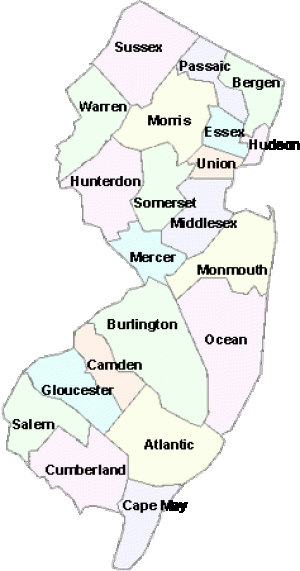A towering figure in American drug reform has left us.
The Garden State is set to get a little greener come November.
Get ready for some creepy true crime prairie noir.
All star hour and a half compilation of interviews conducted by our friend Dean Becker of the DrugTruth Network.
All the medical marijuana news this week involves initiative campaigns.
A former DEA task force member and a former DEA agent are the sole members of this week's rogue's gallery.
There will be no House voe on marijuana legalization until after the election, Vermont lawmakers reach agreement on regulated legal marijuana sales, British Columbia moves to expand access to a "safe supply" of drugs to replace street drugs, and more.
A new poll has the Arizona marijuana legalization initiative at 51%, the natural psychedelic decriminalization movement comes to Ann Arbor, and more.
People with small-time marijuana possession convictions in New York state can now move to get them expunged, Secretary of State Pompeo promises more anti-drug aid for Colombia, and more.
A Texas judge has temporarily lifted a ban on smokable hemp, the Ann Arbor city council approves a resolution effectively decriminalizing plant-based psychedelics, and more.
A Vermont legal marijuana commerce bill goes to the governor, Michael Bloomberg has paid the fines of 32,000 felons in Florida so they can vote this year, and more.
The American drug reform movement lost one of its pioneers on Sunday. Attorney Kevin Zeese died of a heart attack at home after going to bed Saturday night. He was only 64.

Kevin Zeese addresses a rally in Washington, DC, in 2006. (Elvart Barnes/Creative Commons)
Upon graduating from George Washington University School of Law in 1980, Zeese moved immediately into what was then a very lonely movement to end marijuana prohibition, becoming general counsel for the National Organization for the Reform of Marijuana Laws (NORML) and then being selected as NORML's executive director from 1983 to 1986. During his time at NORML during the dark days of the Reagan era, he emerged as one of the earliest advocates of medical marijuana and successfully fought to end the spraying of herbicides on Mexican marijuana crops.
He didn't stop there. After leaving NORML, Zeese joined with the also recently passed Professor Arnold Trebach in 1987 to found the Drug Policy Foundation, which after merging with the Lindesmith Center in 2000 became the Drug Policy Alliance, the largest and most influential drug reform group in the country. He served as vice president and counsel to the Drug Policy Foundation from 1986 to 1994.
He didn't stop there. In 1993, he helped found the Harm Reduction Coalition, a groundbreaking organization that has successfully advocated for such measures as needle exchanges, treatment on demand, and overdose prevention campaigns, and is currently leading the fight to introduce the proven harm reduction practice of safe injection sites in the United States. The Harm Reduction Coalition is also notable for emphasizing the rights of drug users and demanding that their voices be heard in setting drug policies.
He didn't stop there, either. His next move was to found Common Sense for Drug Policy (CSDP) along with businessman Robert Field and attorney Melvin Allen. CSDP sought to broaden support for drug policy reform through a campaign of advertising in serious national magazines across the political spectrum ranging from Reason and the National Review on the right to the Nation and the Progressive on the left. Ever since 1998, CSDP has published and updated the pamphlet Drug War Facts, a veritable activists' Bible of facts and citations related to drug policy issues. Zeese served as CSDP president up until his death.
Nor did he stop there. Broadening his horizons in the current century, and reflecting his disgust with the two-party political system, where he saw both major parties as corrupted by corporate capital, Zeese helped organized against the Iraq war and joined with Ralph Nader's Democracy Rising to push the group to embrace an antiwar position. Two years later, in 2006, he founded the national antiwar group Voters for Peace and served as its director until 2011.

Zeese with then-governor of New Mexico Gary Johnson and reformer group, probably late 1990s
Moving on to progressive third-party politics, Zeese advised campaigns for local Green Party candidates and joined the 2004 Ralph Nader presidential campaign, where he served as press secretary and spokesman for the candidate. In 2006, he ran for the US Senate in Maryland supported by the Greens, the Libertarians, and the Populist Party. He campaigned on withdrawing the US military and corporate interests from Iraq, economic and social justice, and electronic voting reform. He got only 1.5% of the vote.
And he didn't stop there. Zeese was active in the 2011 Occupy movement, participated in the takeover of the Venezuelan embassy in Washington, DC, last year to keep it from Washington-supported foes of leftist President Maduro, and had continued to be involved in Green Party politics up until his last breath.
Joey Tranchina, who opened a syringe program in the early 1990s, and fought San Mateo County to make it legal with Zeese's help, wrote, "Kevin is the best activist field commander I've ever worked with. I never had more fun working with people or arguing with them. Kevin was not into the romance of lost causes; he fought to change evil things, that most people could not imagine ever changing."
Kevin Zeese left a powerful legacy for the drug reform movement and for progressive politics more broadly, but this recitation of biographical facts hardly does him justice. He was whip-smart, passionate, curious, fun and fun-loving. He was always ready to share a joint or a laugh (or both). I'm deeply saddened that he is gone so soon. And when I position his photo for this piece, I will make sure that it aligns left, not right.
back to top
New Jersey looks set to be the next state to legalize marijuana. It's on the ballot come election day, the polls are looking good, and while it's not the only state with marijuana legalization on the ballot, the others -- Arizona, Montana, and South Dakota -- are all out West, and the Garden State should beat them by a few hours.
The New Jersey legalization initiative,
Public Question 1, would amend the state constitution to legalize the recreational use of marijuana and its cultivation, processing, and retail sale. It also designates the existing Cannabis Regulatory Commission (CRC), which currently handles medical marijuana, to regulate all legal marijuana commerce. Retail marijuana sales would be subject to the state sales tax of 6.625%, but any other states sales taxes would be prohibited. The initiative authorizes the legislature to let local governments add a 2% local sales tax.
It also leaves it up to the legislature and the CRC to address unresolved issues. Those include whether and how home cultivation would be allowed, how much weed people could possess, and detailed retail regulations.
If the measure passes, New Jersey will be not only the first to legalize it this election day, it will also be the first Mid-Atlantic state to do so, and the first to legalize it via a legislatively-initiated voter referendum. Of the 11 states (and the District of Columbia) that have so far legalized marijuana, nine did it through citizen-based ballot initiatives, while in the other two, Illinois and Vermont, the legislatures passed legalization bills.
But even though Gov. Phil Murphy (D) campaigned on marijuana legalization in 2017 and vowed to get it passed in 100 days, legislative infighting, opposition within the Legislative Black Caucus, and bickering over revenues blocked the legislature from ever getting it done. As a last resort, Senate President Stephen Sweeney (D) and marijuana reform champion Sen. Nick Scutari (D) filed the resolution giving the voters the final decision. It passed with overwhelming Democratic support over strong Republican opposition last December.
And the polls have consistently shown it winning in November.An April Monmouth University poll of registered voters had the measure winning 61% of the vote, while a July Brach Eichler Cannabis Poll of likely voters had support at 67.6%. An August Brach Eichler Cannabis Poll had support at 66%, a barely noticeable decline and still a number to warm the hearts of legalization supporters.
That latter poll also had a large majority (74%) saying the state should make sure that racial equity issues are addressed, while another large majority, 71%, wanted tax revenues to be used for drug awareness and education. More than half (55%) wanted to see higher marijuana taxes.
"The [poll] shows that as we get closer to the November election, public awareness and support for the legalization of adult cannabis use is steady or growing," John D. Fanburg, co-chair of the Cannabis Law Practice at Brach Eichler, said in a press release accompanying the poll. "Additionally, we can see that voters are recognizing the importance of addressing the social justice impact of disproportional enforcement and arrests against New Jersey's minority population."
For Ken Wolski, RN, executive director of the Coalition for Medical Marijuana -- New Jersey (CMM-NJ), supporting the initiative is a no-brainer. Wolski and CMM-NJ are part of a broader coalition, NJ CAN 2020, that is working with Head Count's Cannabis Voter Project to end marijuana prohibition in the Garden State. Other coalition members include the ACLU-New Jersey, Doctors for Cannabis Regulation, the Latino Action Network, the Law Enforcement Action Partnership, the NAACP New Jersey State Conference, and the New Jersey CannaBusiness Association.
"Legalizing marijuana is the best way to get the right medicine to the most people," Wolski told the Chronicle in an email exchange. "Legalization will make it much easier for adults to take advantage of the tremendous therapeutic potential of cannabis. No longer will adults need a specific diagnosis and multiple visits to physicians to obtain cannabis. Adults in New Jersey will be able to purchase cannabis over the counter, like they purchase aspirin now. NJ currently has some of the most expensive medical cannabis in the country, but increased competition will bring down those prices. Home grow should also come into play. Easily available marijuana will improve public health," he said.
Wolski is counseling reefer revolutionaries who don't think the measure goes far enough to think again. There will be opportunities to further shape what legalization looks like down the road, he said.
"Unfortunately, some marijuana reform advocates oppose the amendment because it does not address their specific concerns about guaranteeing home cultivation, ensuring that ex-felons can participate in the new legal industry, ensuring reparations for individuals and communities harmed by the war on marijuana, etc.," he explained.
"To those who say the question does not go far enough, I point out that the CRC must follow the regulatory process, which ensures input from the people of the state," Wolski continued. "The CRC will hold public hearings before they draft the regulations, then there will be a Public Comment period before they adopt the regulations. This will be the time to make opinions about home grow, social equity, affordable licenses, etc. known. The entire process will be transparent. If some of our demands are not met in the first go-round, we can immediately file to amend the regulations. The very first step is to give whole-hearted support for the ballot question, without which, there will be no reform of marijuana laws in New Jersey for the foreseeable future."
And he'll be fighting for home cultivation, he said.
"We anticipate arguments in civil and criminal courts that the amendment does, in fact, allow home cultivation," Wolski explained. "We plan to work with the CRC in the development of regulations to ensure that home cultivation is part of legal cannabis in New Jersey. At the same time, we will continue to work with legislators for a bill to specifically allow New Jersey medical marijuana program patients and caregivers to grow a limited supply of cannabis for their medical needs."
But first, the measure needs to win.
"If the ballot question fails, the war on marijuana will be business as usual, and we will be that much further away from home cultivation, legalization, expungement, social justice, etc.," Wolski warned. "The first step is victory in November that we can build on. We encourage New Jersey residents to join us in our efforts to pass this ballot question."
back to top
Hell in the Heartland: Murder, Meth, and the Case of Two Missing Girls by Jax Miller (2020, Berkley Books, (319 pp., $27.00 HB)
Early on the morning of December 31, 1999, a northeast Oklahoma couple headed to work in the predawn hours spotted a rosy glow on the rural horizon. The glow was turned out to be a mobile home in flames. It was home to Danny and Kathy Freeman and their teenage daughter Ashley, whose best friend, Lauria (not a typo) Bible, was spending the night.
Rural volunteer firefighters arrived to douse the flames of the now-collapsed trailer, followed shortly by a county sheriff's deputy -- and a crowd of curious neighbors gawking from the road. But when firefighters reported finding a body, but no sign of the presumed other three occupants of the home that night, the Craig County sheriff promptly bowed out of the case, handing it over to the Oklahoma State Bureau of Investigation (OSBI). That's because the Freemans had a serious beef with local law enforcement: A Craig County deputy had shot and killed 17-year-old Shane Freeman a year earlier, and now the sheriff feared Freeman had flipped, killing his wife and taking the girls hostage in his rage over his son's death.
And so begins journalist Jax Miller's Hell in the Heartland, a chilling bit of nasty prairie noir that explores an enduring mystery replete with still-missing girls, stunningly incompetent and possibly corrupt police, and a deeply criminal meth-cooking and -using subculture in the forgotten dead end towns and environmental cleanup sites of far northeast Oklahoma, where it butts up against Kansas and Missouri.
Were the local cops really scared of Freeman or, as relatives would later argue, had they eliminated a threat to them? Was the OSBI agent truly clueless -- as he comes off for years in the book -- or was something more sinister going on? In any case, both the deputies and the OSBI managed to miss the charred body of Danny Freeman in the ruins of the trailer, leaving them fruitlessly searching for their "suspect" in the critical first hours after the girls vanished and leaving family members searching the unsecured crime scene for clues to make the gruesome discovery themselves.
That was only the first in a years-long litany of police bungling or seeming indifference toward finding the killers of the Freeman couple and even more shockingly, finding the missing girls. Miller, who began working on the book in 2015, meticulously sifts through the evidence, pointing out misstep after police misstep. The years went by, rumors abounded, and in the meth subculture of the neighboring towns, whispers were heard of Polaroids and videos of bound and gagged girls and a New Year's Eve party where the captive teens were sexually abused and tortured before being murdered and their bodies thrown into one of the numberless pits that dotted the hellish landscape of Picher, Oklahoma, once a lead and zinc mining center, now a toxic wasteland of mineshafts and hills of mineral tailings that is now part of the Tar Creek Superfund site.
Miller shows how police on both sides of the Kansas-Oklahoma line heard those same whispers but failed to put two and two together. People in the meth subculture knew early on exactly who committed these atrocities, but when they said as much to law enforcement, nothing happened. For years. And while there were attempts to tell the cops, the incentive to keep quiet was strong, since those same killers were still around and scarier than ever.
It takes 18 years for Oklahoma authorities to announce an arrest in the case, with most of the legwork actually being done by the parents of the Bible girl, and just this month, one of the three men named as the killers, Ronny Busick, 69, was sentenced to 10 years in prison after pleading guilty to accessory to murder. It is an unsatisfying denouement. The true mastermind of the murder, a maniacal meth-cooking preacher universally described as "evil" by everyone who knew him, died without meeting justice, as did the second henchman. And the girls have still not been found.
Miller excels at evoking the schizophrenic ambience of small-town pastoral rusticity mixed with bedraggled dead-enders cranked out of their heads, and she digs deep, interviewing dozens of people involved, from sheriffs and OSBI agents to current and former tweakers, family members, and townspeople. In those small towns, people know who is up to what, and Miller finds out, too.
Hell in the Heartland is true crime. It doesn't interrogate drug prohibition; it just accepts meth as a social problem. Nor does Miller talk about the history of meth in Oklahoma -- they may not have been smoking marijuana in Muskogee in the 1960s, but there was a trucker/cowboy speed culture tweaking in Tulsa -- or how harm reduction or other policy responses to an underground drug trade might have shaped a reality where teenaged girls don't get raped and murdered over drug deals gone bad. That's too bad, but she at least gets at the underlying social context. At one point, she writes how the good people of one nearby town "expected nothing but trouble from [those] boys, poor boys, boys of angry fathers and neglected mothers."
Hell in the Heartland is a compelling read, a horrifying mystery, still unsatifyingly unresolved. It's a real page-turner that sheds a very creepy light on that little corner of Oklahoma.
back to top
All star hour-and-a-half compilation of interviews conducted by our friend Dean Becker of the DrugTruth Network. (Trailer here.)
back to top
MississippiMississippi Poll Has Very High Support for Medical Marijuana Initiative. Polling firm FM3 Research recently conducted a survey of state voters and found a whopping 81% supported legalizing the use of medical marijuana. Voters will have the chance to vote on two competing initiatives, one championed by Mississippians for Compassionate Care, and another watered-down created by state legislators. The survey found voters preferred the original initiative, Initiative 65, over the watered-down one, Alternative 65A.
Nebraska
Nebraska Medical Marijuana Initiative Survives Legal Challenge. The secretary of state in late August rejected a legal challenge against a medical marijuana initiative headed for the November ballot. The move came just one day after the initiative had officially qualified for the ballot. The legal challenge claimed the initiative violated the state's single-subject rule and that it "creates doubt about what will be authorized after the election."
Nebraska Supreme Court Hears Lawsuit Seeking to Block Medical Marijuana Initiative. The state Supreme Court heard arguments Thursday from both sides on the constitutionality of a medical marijuana initiative that has already qualified for the ballot. The initiative is being challenged by Lancaster County Sheriff Terry Wagner, even though it has already passed constitutional muster by state officials. The court has until September 11th to rule on this ballot measure and decide whether Nebraska voters will get to decide on medical marijuana.
back to top
A former DEA task force member and a former DEA agent are the sole members of this week's rogue's gallery. Let's get to it:

pile-of-cash_180_202.jpg
In McAllen, Texas,
a former DEA task force member was arrested last Wednesday as part of an anti-corruption drive called Operation Blue Shame. Johnny Jacob Domingue had been a federal task force officer for the DEA in Louisiana and is accused of negotiating the purchase of four kilos of cocaine and the transport of another four kilos of cocaine. On September 9, he traveled from Louisiana to Edinburgh, Texas, where he picked up a vehicle "loaded with eight kilograms of cocaine concealed inside a secret compartment." according to a news release from federal prosecutors. "Domingue intended to transport the vehicle to Houston and on to Louisiana to further distribute the cocaine to buyers," they added. He faces federal cocaine trafficking charges and is looking at 10 years to life in prison.
In Tampa, Florida, a former DEA agent pleaded guilty Monday to plotting with a Colombian cartel to launder money for it. Jose Irizarry pleaded guilty to 19 federal counts, including bank fraud and diverting millions of dollars in drug proceeds from DEA control. He also copped to filing false reports and ordering DEA staff to wire money to be used in undercover stings to international accounts he and his associates controlled. The prosecution was a scandal for the DEA and calls into question its undercover money-laundering operations. It also raises questions about the level of supervision Irizarry had during his tenure at DEA, where he had been entrusted with setting up front companies, shell bank accounts, and courtiers to fight international drug trafficking. He's looking at decades behind bars, although a sentencing date has yet to be set.
back to top
There will be no House vote on marijuana legalization until after the election, Vermont lawmakers reach agreement on regulated legal marijuana sales, British Columbia moves to expand access to a "safe supply" of drugs to replace street drugs, and more.

The House punts on passing marijuana legalization right now. (Creative Commons)
House Postpones Vote on Marijuana Legalization Bill Until After Election Day. A House Democratic member and several aides said Thursday that a pending vote on the MORE Act marijuana legalization and expungement bill will not happen until after Election Day. The bill was set to be voted on next week, but there were already reports that it would be pushed back to allow the House to concentrate on getting a pandemic relief package passed. Some moderate House Democrats have been expressing concern that passing a marijuana bill before the relief bill was passed would leave them open to attacks by Republicans.
Pennsylvania Governor Reiterates Call for Marijuana Legalization. At a news conference Wednesday, Gov. Tom Wolf (D) once again pleaded with lawmakers to move on legalizing marijuana in the state. Republicans control both chambers of the legislature and have said legalization is not on the table. "The COVID-19 pandemic has caused enormous disruptions to Pennsylvania's economy, and with the additional federal aid stagnating in Congress, we need to do everything we can right here in Harrisburg right now, to help ourselves recover from this pandemic," Wolf said. "Some states that have legalized adult use cannabis have received literally hundreds of millions of dollars in additional revenue."
Vermont: Lawmakers Finalize Marijuana Retail Sales Legislation. A legislative conference committee has finalized an agreement on Senate Bill 54, which would allow for the regulated commercial production and retail sale of marijuana to adults. Now, the revised language must be approved by the House and Senate and then be signed by Gov. Phil Scott (R).
International
British Columbia Moves to Increase "Safe Supply" of Drugs. Provincial Health Officer Bonnie Henry issued a public-health order on Wednesday that will allow registered nurses and registered psychiatric nurses to prescribe, make more medications available, and expand eligibility to people who are at risk of overdose, including those who may not necessarily be diagnosed with a substance use disorder. "We know the pandemic has only made the street drug supply in BC more toxic than ever, putting people who use drugs at extremely high risk for overdose," Dr. Henry said in a statement. "Giving physicians and nurse practitioners the ability to prescribe safer pharmaceutical alternatives has been critical to saving lives and linking more people to treatment and other health and social services." Since the COVID crisis began, the province already allowed doctors to prescribe take-home doses of pharmaceutical alternatives to street drugs. Now, they will be available to anyone at risk of overdose.
back to top
A new poll has the Arizona marijuana legalization initiative at 51%, the natural psychedelic decriminalization movement comes to Ann Arbor, and more.

President Trump released the annual certification of other countries' compliance with US drug policies on Wednesday. (CC)
Arizona Poll Has Marijuana Legalization Initiative with Bare Majority. A new Monmouth University poll has the Prop 207 marijuana legalization initiative winning the support of 51% of registered voters, with 41% opposed, 6% undecided, and 3% who said they would not vote on the issue. That is an uncomfortably close margin, but at this late stage also a hopeful one. Traditionally an initiative campaign hopes to begin a campaign with 60% support, expecting to lose some voters as election day approaches and details of the initiative get debated.
Foreign Policy
White Houses Releases Annual Presidential Determination on Major Drug Transit or Major Illicit Drug Producing Countries for Fiscal Year 2021. In an annual exercise in which the US grades other countries' compliance with US drug policy objectives, President Trump on Wednesday named 20 countries as "major drug transit or major illicit drug producing countries." They are: Afghanistan, The Bahamas, Belize, Bolivia, Burma, Colombia, Costa Rica, Dominican Republic, Ecuador, El Salvador, Guatemala, Haiti, Honduras, India, Jamaica, Laos, Mexico, Nicaragua, Pakistan, Panama, Peru, and Venezuela. Although Venezuela is not a drug producing country, Trump named "the Venezuelan dictator, Nicholas Maduro" as "the most complicit kingpin in the Hemisphere." He also called on Colombia to "move forward with aerial spraying" of coca crops and Peru "to resume eradication operations in the country"s high yield coca producing regions, including the Valley of the Apurimac, Ene, and Mantaro Rivers." He also warned Mexico that it must step up anti-drug operations if it wants to avoid being considered a country that "failed demonstrably to uphold its international drug control commitments."
Psychedelics
Ann Arbor, Michigan, City Council to Take Up Natural Psychedelic Lowest Priority Ordinance. The Ann Arbor city council will take up a ordinance that would make enforcement of laws against plant- and fungi-based psychedelic drugs the lowest law enforcement priority next Monday. Those drugs include psilocybin mushrooms, peyote, ayahuasca, mescaline, ibogaine and others. The move is being pushed by an activist group, Decriminalize Ann Arbor.
International
Brazil Fast-Tracks Legislation to Legalize Cultivation of Hemp, Medical Marijuana. The Brazilian legislature is moving a bill that would legalize the cultivation of medical marijuana and hemp. While efforts have been underway since 2015 to revise the country's marijuana laws, this new version of the legislation calls for cultivation, processing, research, storage, transportation, production, industrialization, commercialization, import and export of medicinal cannabis and industrial hemp be legalized.
back to top
People with small-time marijuana possession convictions in New York state can now move to get them expunged, Secretary of State Pompeo promises more anti-drug aid for Colombia, and more.

Cocaine is driving US policy toward Colombia, and the illicit trade is sparking violence and calls for reform. (Pixabay)
New Marijuana Coalition Unveils Plan to Legalize Interstate Marijuana Commerce. A group of advocacy groups and marijuana businesses calling itself the Alliance for Sensible Markets has rolled out a plan to allow marijuana commerce between states that have legalized it even while federal prohibition remains. The alliance will urge governors of legal and hopefully soon-to-be legal states to create an interstate compact to establish a framework for cannabis to be transported and marketed across state lines. If at least two governors agree, the compact would then go to Congress for approval.
New York Courts Ready to Begin Expunging Marijuana Convictions. In line with a law passed last year, the state's court system is now ready to begin expunging low-level marijuana convictions for people previously charged and convicted of specific possession offenses. Under the process, individuals must fill out an application with the court where they were convicted. From there, the applications are then sent to the Division of Criminal Justice Services and applicable law enforcement agencies, who will destroy the already expunged records. For an application with instructions click here.
Foreign Policy
Secretary of State Pompeo Promises More Anti-Drug Aid for Colombia. During his tour of Latin America, US Secretary of Sate Mike Pompeo on Saturday pledged to Colombian President Ivan Duque continued assistance to help fight drug trafficking. The country is under strong pressure from the Trump administration to reduce the size of its coca crop. Pompeo also praised Duque for his stance against Venezuelan President Nicholas Maduro, who the US does not recognize.
International
Colombia Legislature to take Up Coca, Cocaine Regulation Bill Next Month. A bill from a coalition of leftist legislators that would have the national government take control of the drug market by purchasing coca leaf from farmers and regulating cocaine sales will be debated next month. It faces long odds, but the bill's backers say it could reduce the waste of public funds, help protect the environment and led to a better public health approach to drug consumption. They also argue that it would lead to a reduction in violence, which persists despite the 2016 peace treaty with the FARC as other guerrilla groups, FARC dissidents, paramilitaries, drug traffickers, police and the military fight either to control or repress the trade.
Seven Killed in Latest Colombia Massacre. At least seven people died after they were gunned down at a cock fight in the municipality of Buenos Aires in Cauca province, where various armed groups are fighting over control of territory abandoned by the FARC after the 2016 peace deal. This is the ninth mass killing in Cauca this year and the 60th in the country. Cauca has been the scene of some of the worst violence in the fight over control of the coca and cocaine trade.
back to top
A Texas judge has temporarily lifted a ban on smokable hemp, the Ann Arbor city council approves a resolution effectively decriminalizing plant-based psychedelics, and more.

Marijuana legalization and medical marijuana initiatives are polling well. If they can win in South Dakota... (CC)
South Dakota Opposition Group's Polling Shows Voter Support for Marijuana Legalization Initiatives. A poll commissioned by a group opposing the state's marijuana legalization initiative, Constitutional Amendment A, and medical marijuana initiative, Initiated Measure 26, finds both leading by a sizeable margin. The survey found that 70% supported the medical marijuana initiative and 60% supported the legalization initiative.
Hemp
Texas Judge Lifts Ban on Smokable Hemp Until 2021. A Texas judge has granted a temporary injunction barring the state from enforcing a ban on smokable hemp products until a challenge from the industry can be heard on court. The ban was written into legislation legalizing hemp in the state, but four hemp producers challenged it in court. Last week, Travis County Judge Lora Livingston found that the plaintiffs "have demonstrated a probable right to relief," Livingston granted the injunction, which will be in effect until the issue is litigated in February.
Psychedelics
New Psychedelics Research and Education Center Launched at UC Berkeley As Reform Movement Grows. The University of California at Berkeley will launch a new center dedicated to psychedelics research and education, the school announced Monday. Researchers will study psychedelics to "investigate cognition, perception and emotion and their biological bases in the human brain," according to a press release. At the same time, the new entity will be putting resources toward informing the public about "this rapidly advancing field of research." Johns Hopkins University opened a similar center last year.
Ann Arbor, Michigan, City Council Approves Psychedelic Decriminalization Resolution. The city council voted Monday night to approve a resolution effectively decriminalizing plant-based psychedelics (or entheogens). The resolution passed unanimously.
back to top
A Vermont legal marijuana commerce bill goes to the governor, Michael Bloomberg has paid the fines of 32,000 Floridians with felony records so they can vote this year, and more.

One Louisville officer was indicted for endangering others in the killing of Breonna Taylor during a drug raid.
Vermont Lawmakers Send Marijuana Retail Sales Bill, Automatic Expungement Measure to Governor's Desk. With final votes in the state Senate, the legislature has approved two bills, one, S. 54, that allows for the regulated cultivation and sale of marijuana and the other, S. 234, which allows for the automatic expungement of past low-level marijuana possession convictions. The House approved the measures days earlier. The bills now go to the desk of Gov. Phil Scott (R).
Medical Marijuana
North Carolina Poll Shows Strong Support for Medical Marijuana. A new WGHP/Emerson College poll finds that nearly three quarters (72.5%) of respondents support the legalization of marijuana for medicinal purposes. Fewer than one out of five (18.9%) were opposed. Support for recreational marijuana, on the other hand, remains a minority position, but just barely, with 48.1%.
Felon Voting Rights
Michael Bloomberg Pays Fines For 32,000 Floridians with Felony Records So They Can Vote. Former New York City mayor and billionaire philanthropist Michael Bloomberg has donated more than $16 million in a bid to help Floridians with felony records register to vote. Voting rights activists estimate the funds have already paid off fines for some 32,000 felons. Florida voters in 2018 approved an initiative that allowed felons to vote once they pay off all fines, fees, and restitution. Activists had challenged the provision requiring that all fines be paid before allowing felons to register, but the 11th US Circuit Court of Appeals upheld the law last week.
Law Enforcement
Kentucky Attorney General Announces One Louisville Police Officer Indicted in Breonna Taylor Killing, But Not for Killing Her. State Attorney General Daniel Cameron (R) announced Wednesday that a grand jury his office empaneled had indicted former Officer Brett Hankinson on a charge of endangering neighbors with reckless gunfire, but no officer was charged with causing Taylor's death. Taylor was shot and killed during a no-knock middle-of-the-night drug raid in March after her live-in boyfriend opened fire on police he believed were home invaders. As of Wednesday afternoon, the streets of Louisville were filling with angry demonstrators.
International
US Offers $5 Million Reward for Arrest of Colombia Rebel Leader. The US is offering a reward of up to $5 million for information leading to the arrest of a leader of the Colombian rebel group the National Liberation Army (ELN). The US accuses Wilver Villegas Palomino of participating in an ongoing scheme to distribute Colombian cocaine in the United States to finance the rebel group. The ELN was founded more than 50 years ago to fight for a more just Colombia, but like other armed actors there, has been involved in the cocaine trade. US Secretary of State Mike Pompeo recently described Palomino as an "indicted terrorist."
British Labor MPs Call on Their Leader to Embrace Drug Law Reforms. A group of Labor MPs organized as the Labor Campaign for Drug Policy Reform (LCDPR) are calling on party leader Keir Starmer to get behind the need for urgent drug law reforms. The group, which consists of 20 MPs, launched a manifesto yesterday calling for an explicitly public health-based approach to drug use, the introduction of safe injection sites to prevent overdoses, the expansion of pill-testing services, and the diversion of drug possession offenders out of the criminal justice system.
back to top











